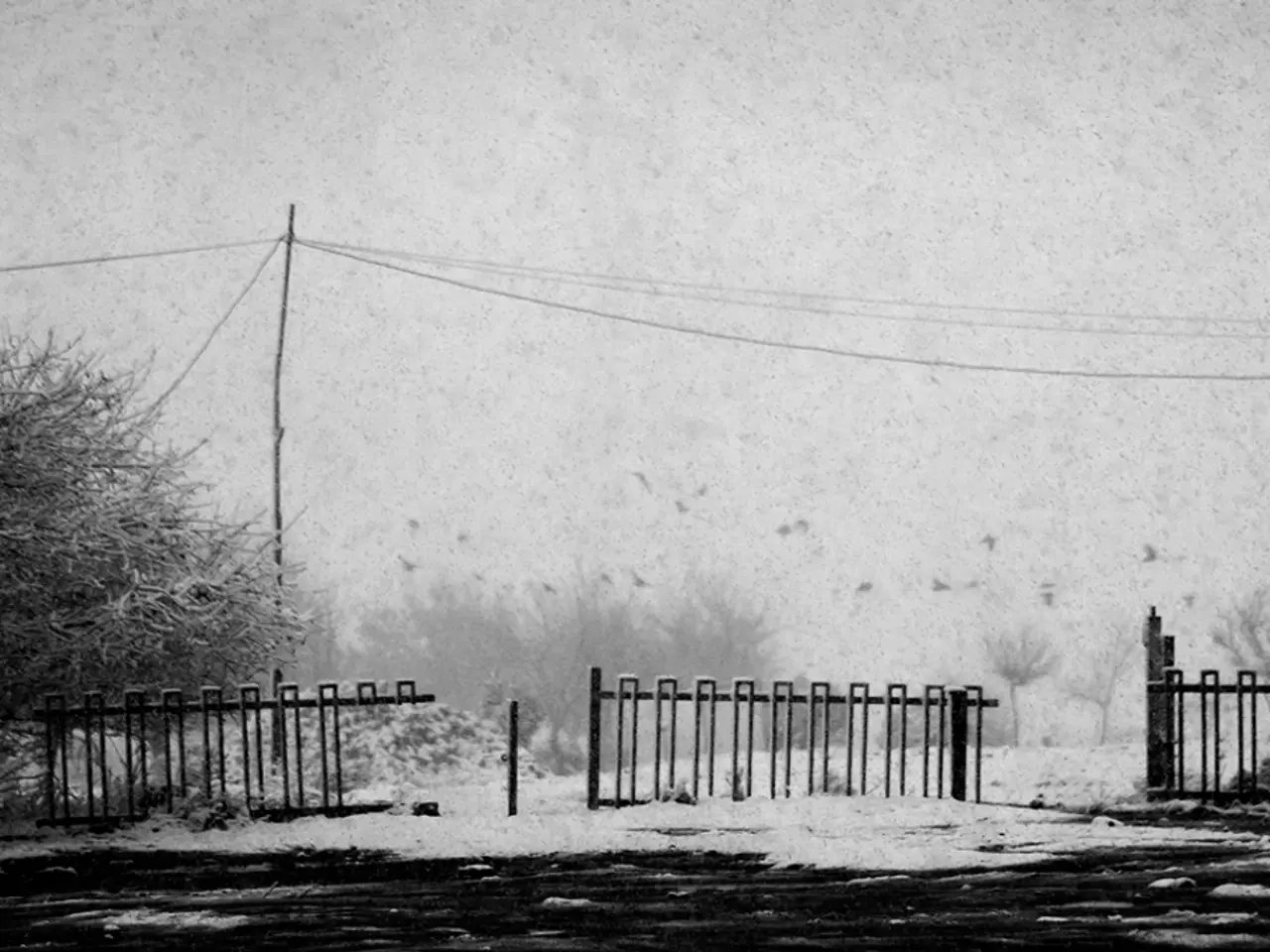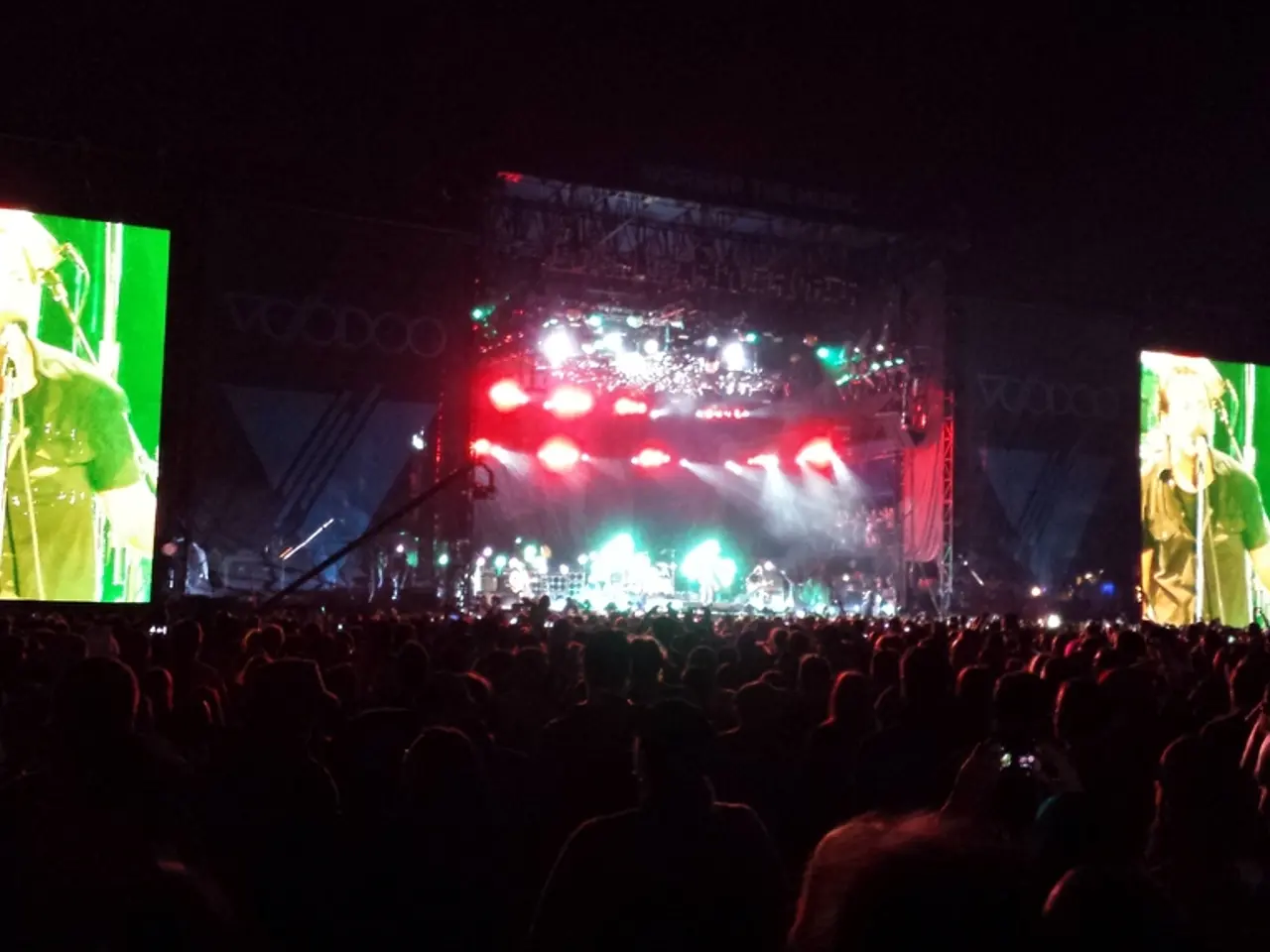Persisting Widespread Political Inaction Amid openly expressed antisemitism towards Israel
In the heart of Germany, Berlin has been grappling with the complexities of managing anti-Israel demonstrations and the associated rise in antisemitic incidents. This struggle is part of a broader institutionalised opposition to antisemitism, a fundamental element of German post-war identity and state policy.
In February 2024, Berlin's governing mayor, Kai Wegner, announced a significant move by banning gatherings that incite terror or promote hate speech at anti-Israel demonstrations, considering them criminal offenses, not freedom of speech. This decision came after a contentious gathering at Checkpoint Charlie in October 2024, which required massive police intervention to maintain control.
The German government's stance on this issue is controversial. It classifies certain anti-Israel stances, such as support for the Boycott, Divestment, and Sanctions (BDS) movement, claims of Israeli apartheid, and framing Israel as a colonial entity, as antisemitic. This classification has sparked debate about what constitutes legitimate criticism versus antisemitism, often leading to tensions with Jewish voices critical of Israel.
Despite the controversy, Berlin's authorities have demonstrated a firm approach to security risks associated with some demonstrations. Raids and police interventions have taken place against those suspected of supporting Palestinian terrorist groups, signalling a strict approach to maintaining public safety. However, explicit blanket bans on demonstrations have not been clearly reported.
The debate over fighting antisemitism versus respecting criticism of Israel continues to be nuanced and politically sensitive in Berlin and across Germany. Scholars like historian and antisemitism researcher Günther Jikeli have proven a "mobilization against Jews" at anti-Israel demonstrations, but politics has yet to take significant action.
The general public seems to have grown increasingly indifferent to the ongoing anti-Israel demonstrations in Berlin. However, the situation remains challenging for the police, who continue to face difficulties in managing these demonstrations and ensuring public safety.
In recent months, incidents such as the dissolution of a pro-Jewish demonstration due to security concerns, the protection of Berlin FDP politician Karoline Preisler during an anti-Israel demonstration, and the severe injury of a police officer during an Israel-hatred demonstration, have highlighted the ongoing challenges.
Despite these challenges, Berlin's authorities have taken steps to address the issue. Since March 2025, Berlin police officers have an expanded guide to help recognise and pursue antisemitic crimes, and the consulting offer has been significantly expanded.
As the situation continues to evolve, it is clear that Berlin's approach to managing the challenges of Israel-hatred and antisemitism linked to demonstrations will remain a critical issue for the city and the country as a whole. Extremism researcher Ahmed Mansour has warned about the dangers of complacency towards the enemies of democracy and the Jewish state, emphasising the need for continued vigilance and action.
In light of the ongoing debate, Berlin's authorities are considering the general-news topic of anti-Israel demonstrations as a potential threat, especially when they incite terror or promote hate speech, falling under the category of crime-and-justice. The newly announced ban on such gatherings in February 2024, deemed criminal offenses, is a significant move aimed at maintaining public safety and combating antisemitism, a persisting challenge in Berlin's politics.








